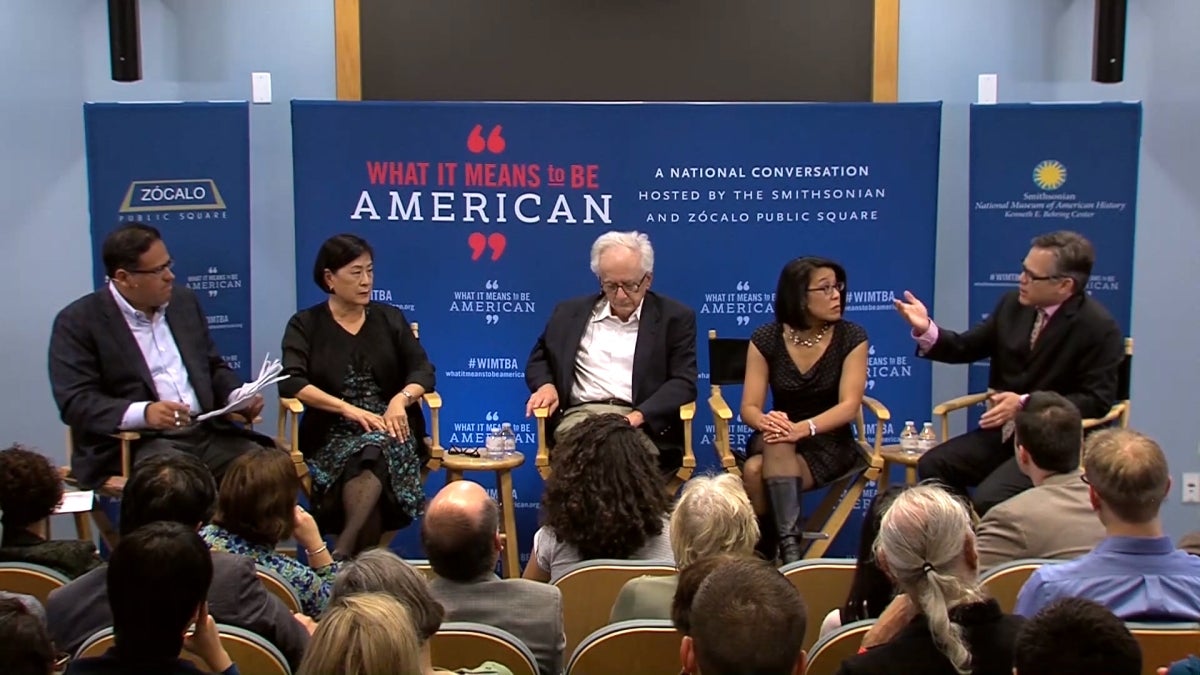ASU Insight: What It Means to Be American "The 1965 Immigration Act That Became a Law of Unintended Consequences" (Highlights)

Matthew Garcia, Director of the School of Historical, Philosophical, and Religious Studies at Arizona State University discusses the Hart-Cellar Act of 1965.
At a Smithsonian/Zócalo “What It Means to Be American” event on the occasion of the 50th anniversary of the the Hart-Celler Act of 1965, a panel of scholars tried to explain how a piece of legislation could create so many contradictory and unexpected after-effects, and what kind of world created the policy. At the time the act was passed, there was a robust circulation of immigrants between Mexico and the U.S. Between 1942 and 1964, some 4.6 million workers came to the U.S. as “guest workers” under the auspices of the Bracero program. The 1965 Immigration Act suddenly limited immigration from all countries in the western hemisphere, and a 1976 revision to the act further specified that each country (in any hemisphere) would only be allotted 20,000 immigrants.
These changes to immigration law “created an artificial separation between Mexican-Americans and Mexican immigrants,” especially in the 1970s, said panelist Matt Garcia, director of the School of Historical, Philosophical, and Religious Studies at Arizona State University.
“It’s very hard to see [the 1965 Immigration Act] as positive from a Latino point of view,” he said. For one thing, “The cap created the ‘illegal immigration’ label,” Garcia said, since the high numbers of Mexican and Central American immigrants going to America couldn’t stop overnight even if the law changed.
It also “imperiled attempts to unionize farmworkers,” Garcia said. Because the main sponsor of Cesar Chavez’s efforts with farmworkers (the AFL-CIO) didn’t consider non-citizens worth organizing, Chavez left out a large population of workers in need of protection.
It also led to laws like Proposition 187 in California, which limited undocumented immigrants’ access to public schools and publicly funded healthcare, among other services, Garcia said. (A federal district court later found the proposition unconstitutional.)
“It’s been very, very wrenching for Latino families,” Garcia said. “They’re the ones who have been the most vocal in saying we need immigration reform.”
“Both [Presidents] Kennedy and Johnson were very conscious of … the tarnishing of America’s reputation as the leader of the free world,” Ngai said. “You had Jim Crow and you had national origins quotas. So a lot of the willingness of the administration to enact civil rights reform is [from wanting] to look better around the world.”